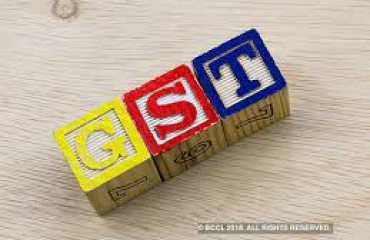
While Ahmedabad reported the highest Rs 971 crore of tax involved in bogus billing, in Surat it was Rs 789 crore. Both Ahmedabad and Surat saw involvement of 250 and 196 firms each, respectively.
Since the implementation of Goods and Services Tax (GST), Ahmedabad and Surat have become the hubs for bogus billing in Gujarat, while the web of illegal transactions has also spread to rapidly industrialising districts like Bhavnagar, Rajkot, Morbi and Gandhinagar where a sizeable number of trading and business firms have been found involved in this racket.
Both Ahmedabad and Surat districts account for almost 58 per cent of the Rs 3,094 crore worth of taxes involved in bogus billing rackets in the three years ending June 30, 2021, the state government stated in a written reply to an unstarred question asked by Congress MLA from Petlad, Niranjan Patel about bogus billing in
GST during the recently concluded monsoon session of Gujarat Assembly.
While Ahmedabad reported the highest Rs 971 crore of tax involved in bogus billing, in Surat it was Rs 789 crore. Both Ahmedabad and Surat saw involvement of 250 and 196 firms each, respectively. GST came into effect from July 1, 2017. While this bogus billing racket is being reported from 18 of the 33 districts of Gujarat, smaller industrial clusters like Bhavnagar, Rajkot, Morbi and Gandhinagar are also reporting involvement of large number of firms in producing fake bills.
Bhavnagar has third highest quantum of tax (Rs 433 crore) involved, where a total of 104 trading units are under scrutiny.
Though the government in its written reply stated that no government officials have been found involved in the bogus billing cases till June 30, 2021, the situation changed the very next month.
Bhavnagar became the singular place in Gujarat where the state government stepped in and transferred 36 officials from one office of SGST department in connection with a Rs 1,000 crore bogus billing case unearthed in July.
Two of these SGST officials including a deputy commissioner were also suspended for their alleged involvement in the case. This is however the first time, the involvement of government officials have come to light.
The data tabled in the Gujarat Assembly also states that 1,037 trading and business firms were involved in generating bogus bills and smaller industrial locations like Rajkot (Rs 333 crore), Morbi (Rs 126 crore) and Gandhinagar (Rs 104 crore) emerged as centres for generation of fake GST bills.
SGST officials in Gujarat The Sunday Express spoke to said that the bogus billing racket in the state involves a complex network of individuals who use these fake bills to illegally claim Input Tax Credit. "This web of individuals could comprise of as many as 50 persons and are roughly categorised by us as initiator entities, pass-on entities and beneficiaries depending on the role they play while implementing the fraud," said an SGST official.
For instance, in the 2020 case involving one Paresh Chauhan from Ahmedabad, documents were sourced from gullible individuals and the same were used for registrations on GST portal. As the entire system is online, the spot verification of the registered address was not done (it has been made compulsory now).
"Paresh was arrested in beginning of 2020 and is among the first fraud cases in India to go on trial," the official said adding that 36 entities were involved in the Rs 900 crore bogus billing racket that was being operated out of a rented premises in Ahmedabad city.
SGST officials said bogus billing rackets in Gujarat operate out of not only rented premises, but also have been found operating from premises belonging to some associate remotely connected with the conspirator.
